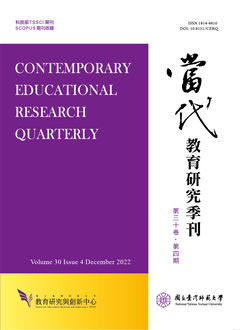

組織的實際運作除了依靠正式規則加以規範以外,事實上,還另外盛行著一套「潛規則」。潛規則即是為人們所默認、遵從、只做不說、隱匿在正式規則下的一套行為規範。在教育行政的組織脈絡中,如果非正式組織與正式組織得以分庭抗禮,同為領導者關注的兩大場域,那麼衍生而出的潛規則當亦與正式規則勢均力敵,一起影響組織發展興衰和效能良窳。針對潛規則此一新名詞所代表的舊現象,雖然百家爭鳴,各路觀點薈萃,但因為其尚未成熟發展出一套完整的獨立論述,本研究即從初步整理潛規則的對應理論入手,繼而據以建構一組教育行政潛規則的概念模式。本研究歸納出複雜理論、交易成本理論、派系理論與社會交換理論為潛規則的代表性立論基礎。與之同時,本研究所建構之潛規則概念模式涵蓋潛規則的起因、類別、與正式規則的關係、操作形態和影響等主要面向。本研究以提出潛規則在教育行政所具有的啟示作結。
In addition to formal rules that publicly maintain organizational operations on a daily basis, in fact, there exist other kinds of “hidden rules” in organizations that privately dominate members’ interactions. The so-called “hidden rules” are the behaviors and regulations that are obeyed, tacitly recognized, done without saying by members, and concealed under formal rules. Within the organizational context of educational administration, if the informal organization is considered as critical as the formal organization, and both equivalently draw leaders’ major attention, then the hidden rules, to a great degree, are tantamount to the formal rules, and both have a major impact on organizational development and effectiveness. Given that the current theoretical discourse for “hidden rules” is not yet fully developed, this paper therefore begins with discussing the corresponding theories of hidden rules, and then constructs a comprehensive conceptual model of hidden rules accordingly. As a result, the four theories of complexity, transaction cost, faction, and social exchange are incorporated into the theoretical foundation of hidden rules. Meanwhile, the five dimensions of cause, type, relationships with formal rules, operational patterns, and influences are included to build the conceptual model of hidden rules. This paper concludes by proposing theories related to hidden rules, as well as practical implications of hidden rules on educational administration.

本著作係採用創用 CC 姓名標示-非商業性 3.0 台灣 授權條款授權.
本刊國立台灣師範大學教育研究與創新中心
106台北市和平東路一段162號 | 電話: 02-7749-3670 | E-mail: cerecerq@gmail.com
教創中心 | 師大 | 電子報 | 線上投審系統
本刊由國家科學及技術委員會人文社會科學研究中心補助經費
© 2014 CERI-NTNU
